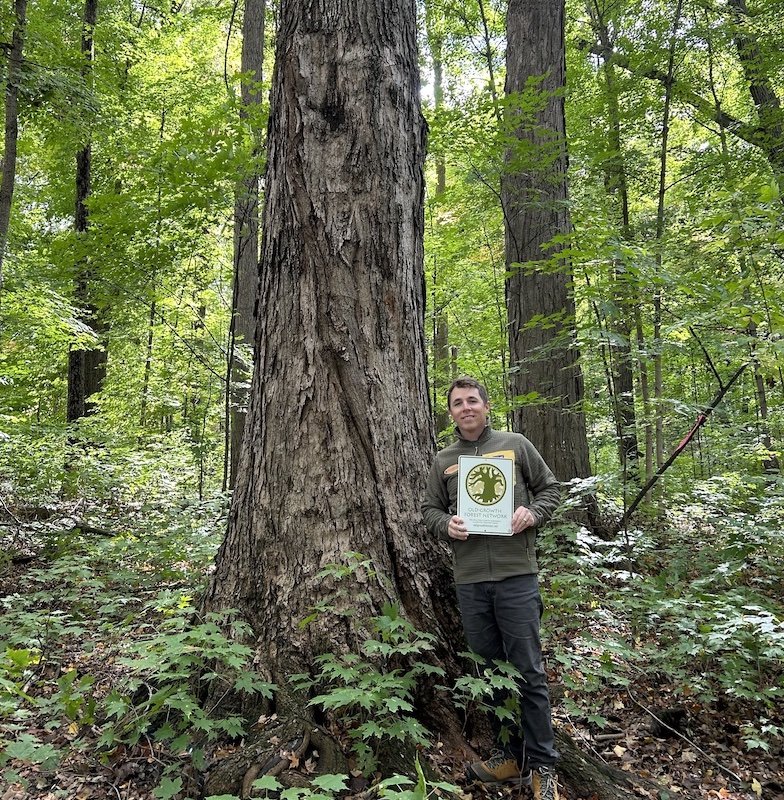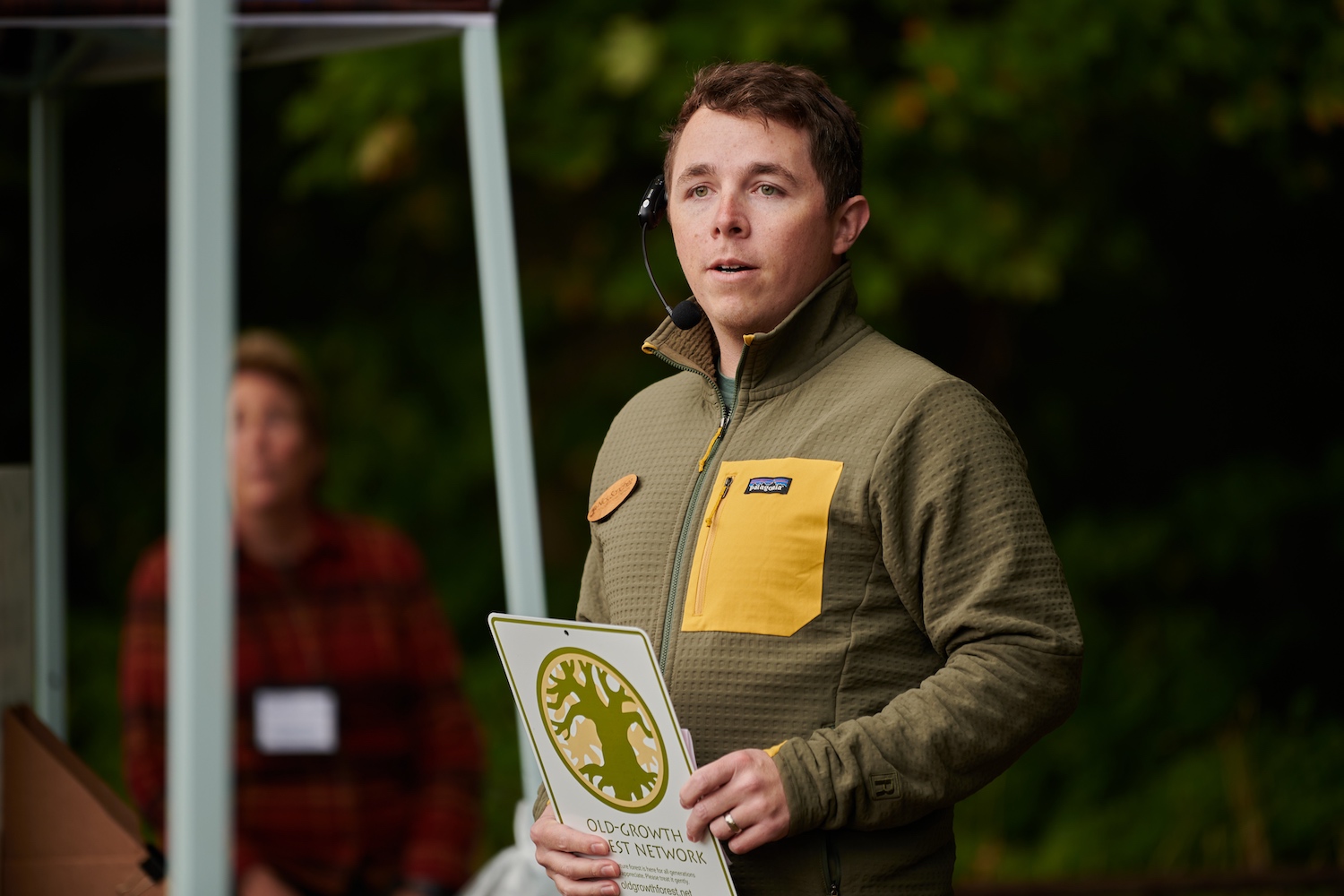Nick Sanchez is the network manager of the Old-Growth Forest Network, an organization dedicated to highlighting old-growth, native forests across the U.S., where he has worked since 2021. Nick graduated with a bachelor's degree in forestry from Michigan State University in 2013 and got his start organizing invasive species management with the local Ingham County Parks. He is a certified forester with the Society of American Foresters.

This fall, I had a chance to come home and celebrate a local forest with the Spartan community. Michigan State University protects several forested natural areas on campus, and the 78-acre Baker Woodlot was recently recognized for its outstanding old trees protected by MSU and the accessibility of the forest to the community. The forest joined nearly 230 forests across 35 states recognized in the Old-Growth Forest Network.
On Saturday, Oct. 7th, we joined faculty from the MSU Department of Forestry and local volunteer county coordinator Jim Hewitt along with 75 attendees to welcome Michigan’s 10th forest into the national network. The Department of Forestry curated expert-led hikes through Baker Woodlot to discuss its history, ecology and showcase its natural features. With nearly two miles of trails, the forest serves as a critical green space for students, faculty and staff, and a training ground for aspiring foresters, wildlife biologists and other disciplines.
Old forests are incredibly rare on the landscape as a result of Euro-American settlement, which paved the way for the near-complete exploitation of Michigan’s forests. Nearly half of the state’s forested land was converted to agricultural uses and development. The remaining forest is on average 65 years old, spread across a mix of ownerships controlled by families, industry and state and federal agencies, 90% of which is available for on-going timber harvest.
Like all forests in Michigan, Baker Woodlot has a very long history of human interaction, from indigenous uses to more recent experimental cutting that ended around mid-century. While the oldest portions of Baker Woodlot have not been aged to approximate an amount of time since the last major blowdown, old-growth characteristics are certainly present. Some of those characteristics have likely been cultivated and retained through time by indigenous caretakers. Other characteristics may be in the process of recovery following more recent disruption, their redevelopment potentially set on course as a result of past management decisions by the Department of Forestry.
Baker Woodlot is of foundational importance to me, and celebrating it in this way was a sort of homecoming. As a student at MSU, I struggled to avoid distractions and find a direction that captured my attention and imagination. Eventually I realized that I needed to pull on a thread that led straight back to my childhood, which was marked by a deep love for nature. I took an opportunity to switch my college major to forestry in the fall of 2009. Swapping our desks for clipboards, we spent many hours in Baker Woodlot studying and measuring trees. For the first time since starting my college experience, I felt a great sense of belonging and purpose. Baker Woodlot was an outdoor classroom that we returned to many times throughout our program, rain or shine, advancing our skills.
After college, I worked one-on-one with family forest owners both as a public service forester and later with a land trust, assessing what would amount to several hundred woodlots in West Michigan. I often thought about how they compared to my foundational forest, but it took me years to realize just how special Baker Woodlot really is. I now work as the network manager of the Old-Growth Forest Network, a national nonprofit that focuses on recognizing and celebrating our nation’s oldest forests. Connecting back with the Department of Forestry and community to celebrate Baker Woodlot has been an absolute honor.
Mosquitoes, ticks, mud and snow, I am grateful for my education and a career that has allowed me to engage with people all around the country who share a deep relationship with our forests. I wouldn't have guessed it when I started this career path but the conversation around the care of our forests is a topic of presidential speeches and major headlines. Future Spartans should know that they will be engaged in matters of global importance.
